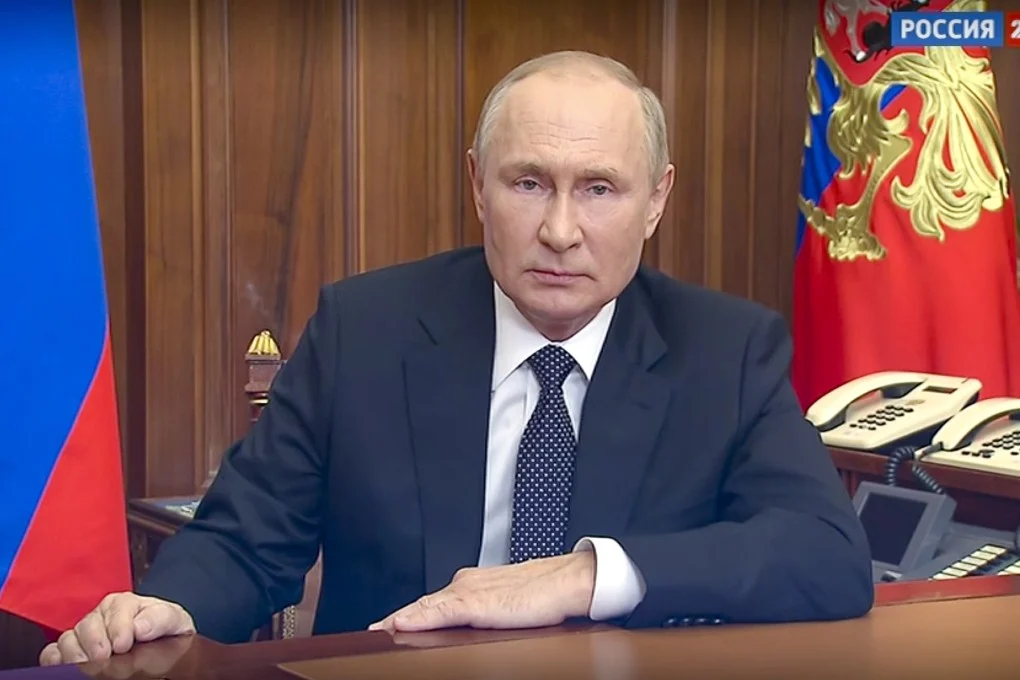President Vladimir Putin has initiated Russia’s most extensive military call-up since 2011, ordering 160,000 men aged 18 to 30 to report for service.
This decision comes as part of a broader strategy to expand the Russian armed forces amid ongoing conflicts and growing geopolitical tensions.
The latest draft is part of Russia’s routine conscription process, which occurs biannually in spring and autumn.
However, the current figure is 10,000 higher than the number called up during the same period last year.
The Kremlin has also raised the upper age limit for conscription from 27 to 30, thereby increasing the pool of eligible recruits.
Vice Admiral Vladimir Tsimlyansky, a senior Russian military official, has assured that these new conscripts will not be deployed to Ukraine for what Russia refers to as its “special military operation.”
However, there have been past instances where conscripts were reportedly sent into combat zones, including Russia’s border regions and, in the early stages of the full-scale invasion, into Ukraine itself.
Military Expansion Amid Heavy Losses
Putin’s order follows his previous announcement that Russia’s total military strength would be increased to 2.39 million personnel, with active service members reaching 1.5 million over the next three years.
This marks a planned increase of 180,000 soldiers, reflecting Moscow’s commitment to sustaining its military presence despite the toll of prolonged warfare.
The BBC and independent Russian news outlet Mediazona have verified the deaths of over 100,000 Russian soldiers in Ukraine, with actual numbers speculated to be far higher.
The Kremlin has sought to replenish its ranks not only through regular conscription but also by hiring contract soldiers and allegedly recruiting thousands from North Korea.
International and Domestic Responses
The conscription order coincides with heightened tensions between Russia and NATO. Finland, which shares a 1,343-km (834-mile) border with Russia, has recently announced its withdrawal from the Ottawa Convention banning anti-personnel mines.
Prime Minister Petteri Orpo stated that the decision was based on military advisement, amid fears of potential Russian aggression. Neighboring countries such as Poland and the Baltic states made similar moves earlier this month.
Additionally, Finland has pledged to raise its defense budget to 3% of GDP, up from 2.4% in the previous year.
These measures underline the security concerns sparked by Russia’s military actions and the broader expansion of NATO, which now includes both Finland and Sweden.
Impact on Russian Society
Domestically, the latest draft has triggered concerns among Russian citizens, with growing numbers seeking to evade conscription. Reports indicate an increase in applications for “alternative civilian service,” a legal option allowing conscripts to serve in non-military capacities.
However, human rights lawyer Timofey Vaskin has warned that the draft process has become unpredictable, with authorities adopting new methods to bolster troop numbers.
Russian officials are delivering call-up notices through both traditional mail and digital platforms such as the state services website, Gosuslugi.
In Moscow, there are reports that conscription notices were issued via the city’s mos.ru website as early as April 1.
Ongoing Conflict and Ceasefire Attempts
Despite U.S. diplomatic efforts to broker a ceasefire in the Russia-Ukraine war, hostilities have continued. On Tuesday, Ukrainian officials reported that a Russian strike on a power facility in Kherson had left 45,000 residents without electricity.
Russia had previously signaled a willingness to refrain from targeting Ukraine’s energy infrastructure, yet Kremlin officials claim Ukrainian drones have continued operations against Russian assets.
These conflicting reports cast doubt on any meaningful de-escalation shortly.
Putin’s latest move to bolster Russia’s military underscores the nation’s long-term commitment to its war efforts, despite heavy battlefield losses and mounting international opposition.
As tensions escalate with NATO and neighboring countries increasing their defenses, the geopolitical landscape appears set for further confrontation. With the draft now in effect, the coming months will reveal how Russian society responds to this significant military expansion.

